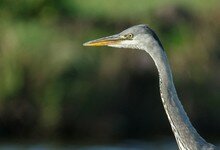Eli Hirsh on Tal Nitzán’s The First to Forget
Tal Nitzán’s fourth collection of poems is an impressive book in which she reveals herself for the first time as a mature poet. The book emits a stubborn sadness and deals with loss, losing one’s way, painful memories, catastrophe and mourning and at times, as in the poem ‘It’, with love which has passed or run into trouble, leaving behind not so much an empty space as a heavy load of memory which doesn’t find its place.
‘It’ is one of the most beautiful poems in the collection . . . What is this “it”? From the start, “it” lacks a title or name, but we are given to understand that it is violent and brutal, undermining the fabric of life and likely to overtake it.
Other poems in the book interpret “it” more concretely. In ‘To Your Request’ (a wonderful poem I think) Nitzán describes severe, ongoing mourning or depression, and does it with heartbreakingly charming precision. The poem opens with the line “It was the longest sorrow I had known”; the word “it” appears five times more in the poem. Each time, “it” hints at the subject of the poem, ongoing sorrow. All uses of the word are significant, including the penultimate one which describes a break from depression: “One day it suddenly / casts you up once again on the beach. / A gentle breeze, the color around you becoming clear, / your legs tremble a little in the sand.”
“It” cannot be vanquished or evaded, but it may cast you on up on the beach in a moment of obliviousness. In the poem which opens the book, “it” is a “catastrophe” which it is clear there is no escaping: “For a long time we have needed a new catastrophe / which will erase the remainder of our catastrophe”. In the poem which follows, the catastrophe is called “losing” or more accurately “loss upon loss” because it is huge and primal, taking place in a real or imaginary past, sending out long tentacles of endless mourning and making the poet lose the present as well.
‘The Sonnet for the Sabbath Dress’ is exceptional for two reasons. First it takes Nitzán’s tendency to write traditional poetry to an extreme, so much so that the result is a tender, glowing, old-fashioned sonnet. Secondly, it dares to articulate sorrow’s exact opposite: the most vivid joy. But this joy is inextricably connected [ . . . ] to notions of sin and corruption. From the start, even before the defacement described in the poem transforms kisses into bruises, a sort of radiance is created in the depths of the deepest darkness “in places which neither sun nor moon ever saw”.
There is no place on earth, in a body or a soul, which neither sun nor moon have seen. Perhaps this is a kind of fantasy about a place existing outside the realm of time – for the sun and moon are those lights in Genesis which extricate time from its blind vacillations between day and night, between hidden light and the darkness of the abyss, and allow it to accumulate into months and years, into people’s lives.
A lament over the death of eternity at the hands of time and the coming into existence of memory and awareness lies at the heart of Nitzán’s poetry. There is an interesting analogy between this lament and Nitzán’s tendency to write very traditional, articulate, cultured, restrained and most of all basically conservative poetry, in which the resolution of the tension between good and evil, including the mirroring game between the “good girl” and the “bad girl”, is an entrenchment in the role of priestess of old trapped in her eternal sorrow. It seems to me that much of what is going on today in new Israeli poetry has to do with a hesitant desire, perhaps not entirely aware of itself or of the challenges it faces, to rebel against the eternal sorrow which Nitzán presents with such skill.
Excerpted and translated from Eli Hirsh's review in the Seven Nights culture supplement, Yediot Aharonot, 28 August 2009.







